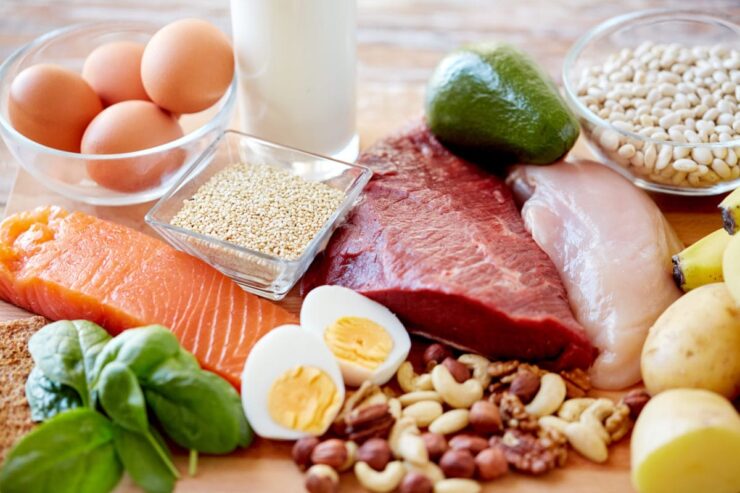Which foods have the most vitamins and minerals? How do they affect your health? These are just some of the most common questions on everyone’s mind, especially during the colder period of the year. The average person’s diet is varied, and research shows that it is still lacking in many essential nutrients.
This most often refers to minerals such as calcium, potassium, magnesium, but also to vitamins A, C and D. Considering their roles, you should choose your food carefully. We have a few suggestions for you.
1. Fish

It represents an oasis of health. Nutritionists recommend eating it at least twice a week. With its nutritional composition, it meets the needs of all ages. It also contains a special enzyme that stimulates the secretion of gastric juices, and the food is a valuable source of vitamins A, D and E. In addition, it contains unsaturated fats, valuable for preventing cardiovascular diseases, fighting stress and improving concentration. For example, marine fish is rich in iodine, potassium, sodium and copper, while freshwater fish contain slightly less of them. However, all types contain vitamins B1, B2, B6 and B12. That is why it is useful to include small fish in the menu from time to time.
Even oily fish is extremely healthy for the human body, but you should pay attention to the way of preparation. In this way, you also get protein. Pay attention when buying this food. You should be guided by the following rules. If you bought frozen fish, it must not have white marks on it. Be sure to check the package date when buying canned fish. Fresh fish should be completely clean and shiny, and if it is dry it is a bad sign. The smell also says a lot about its quality. Finally, feel it before you buy.
2. Berries
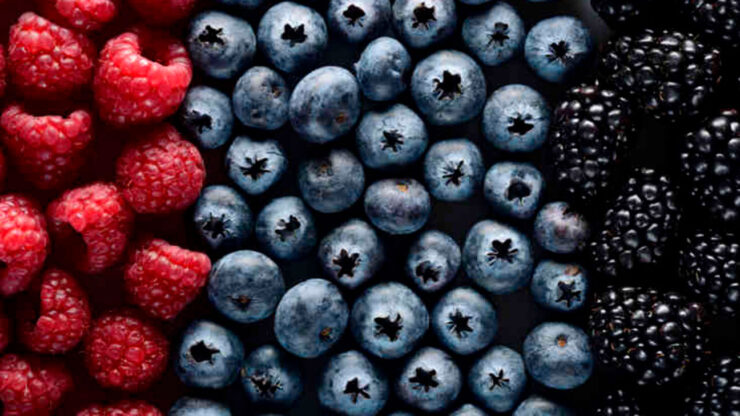
Berries include small, soft, round fruits of different colors. They have a fantastic nutritional profile. It is usually rich in fiber, vitamin C and antioxidant polyphenols. Including this type of fruit in your diet can help you prevent and reduce the symptoms of many chronic and acute diseases. That is why it is desirable to have blueberries in your home during the season, because they are an excellent source of vitamin K. They also reduce stress and reduce the risk of developing heart disease. Some research also proves better cognitive functions.
Raspberries are equally tasty and healthy. They are often used in desserts, but they are also a good source of fiber. They contain antioxidant polyphenols called ellagitannins, which can help reduce oxidative stress. One of the best sources of vitamin C are strawberries. They also lower blood cholesterol, help control sugar levels and prevent diabetes. We must not forget about other healthy foods such as cranberries and grapes. But not a single food contains one almost magical mineral, so go to ormusonline and learn more about Ormus.
3. Nuts
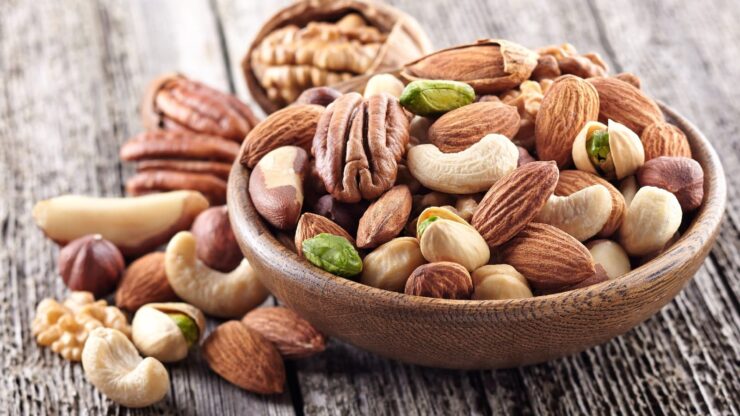
They are rich in numerous minerals, especially magnesium, zinc, manganese, copper, selenium and phosphorus. Some nuts are even more important than others. You can eat them as a snack, but also in smoothies, porridge for breakfast, along with fresh fruits and vegetables. For example, hazelnuts are considered a heart-protecting, cholesterol-lowering, and anti-inflammatory stone fruit, while cashews help boost the immune system and improve the reproductive system.
They also improve brain function, because they are rich in omega 3 fatty acids, which are necessary for our body. They are great for the brain, eyes, joints and help with weight loss. Nuts have a positive effect on both the female and male reproductive system and generally have a pronounced prophylactic property. They will be an excellent ally if you struggle with insomnia.
4. Cabbage vegetables
Cauliflower, Brussels sprouts, cabbage, kale or broccoli are associated with numerous health benefits. One of the biggest benefits is reducing the risk of heart disease. Vegetables are rich in sulfur, which is responsible for detoxification and cell function. It also contains magnesium, calcium and manganese. Women who are in menopause have a special benefit from cruciferous vegetables. It eases the transition.
During the process, the hormone estrogen begins to decline, disrupting your normal cyclical patterns. The drop in estrogen also has a negative impact on your entire metabolism. For example, there is weight gain, hot flashes and difficulty sleeping. Bone density also decreases, which increases the risk of fractures. Changes in diet can significantly alleviate the symptoms of menopause, and one of the preferred foods is cruciferous vegetables.
5. Eggs
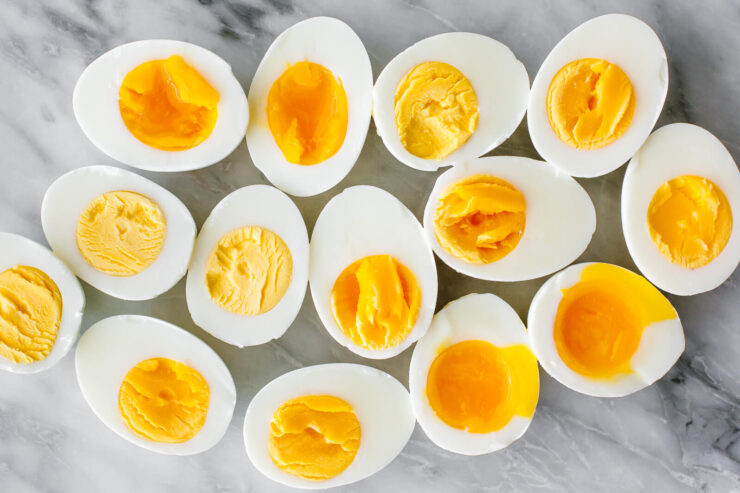
Nature’s multivitamin is definitely eggs; they are rich in iron, phosphorus, zinc, selenium, numerous vitamins, healthy fats, proteins, antioxidants. Many people avoid yolks, but they contain almost all vitamins, minerals and other important components.
They are rich in cholesterol, but they do not affect the level of cholesterol in the blood. It is known that our vision deteriorates as we age, and eggs are one of the foods that you use as preventive measures. However, what kind of eggs you consume is important. So not all products are created equal. The composition varies depending on the type of cultivation.
6. Beans
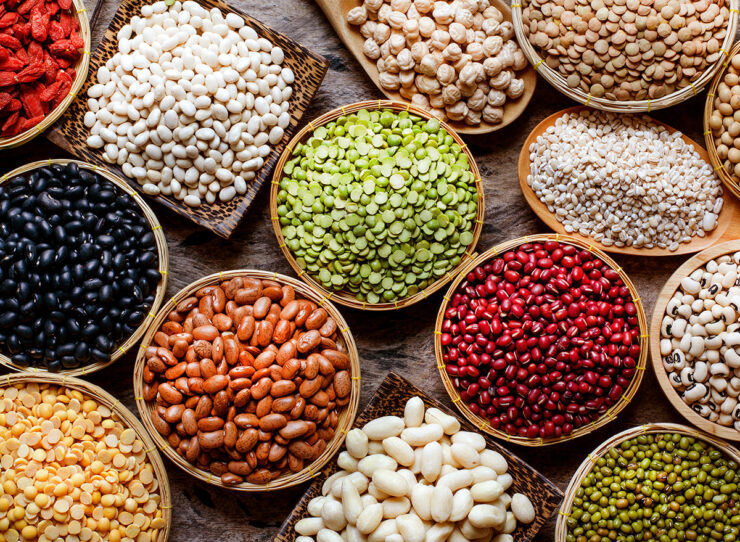
Beans have a high energy value and contain almost all essential amino acids. It is an excellent source of protein, and unlike other sources, beans have little fat, so they do not contain saturated fat or cholesterol. One serving of beans provides 20 percent of your daily fiber needs.
Testing showed that red, colorful and dark blue beans had up to ten times more antioxidants and other medicinal substances than white and yellow beans. Proper preparation of these foods by pre-soaking and then cooking helps them to increase the biological availability of minerals.
Conclusion:
Compiling a list of healthy foods is quite a challenging task, because there are certainly a lot that we have left out. Although they are nutritionally valuable and deserve attention, supplements are no less important. They should also be on your list, especially magnesium and calcium. Remember that a healthy diet is not uniform and does not include a small selection of foods.

